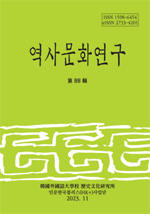형제복지원과 생명정치
‘Hyeongje-welfare Institution’ and Biopolitics: Focusing on the Integration of vagrants and mental disorders
- 한국외국어대학교 역사문화연구소
- 역사문화연구
- 제90집
-
2024.05123 - 154 (32 pages)
-
DOI : 10.18347/hufshis.2024.90.123
- 156

부산 형제복지원은 1975년부터 1987년 사이에 수용자들에 대한 가혹한 처우로 공식 사망자만 531명을 기록했던 부랑인 수용소이다. 1987년 1월 형제복지원의 참상이 언론에 보도되었을 때 언론은 정상인이 형제복지원에 잘못 수용되었다는 점에 대해 경악한 반면, 비정상인인 부랑인의 수용 자체는 문제 삼지 않았다. 이러한 판단에는 부랑인을 갱생 대상으로 여기고 근면 정신을 강제로라도 주입해야 한다는 과거의 편견뿐 아니라 부랑인이 정상인이 되지 못하는 근본적인 결함이 포함되어 있다. 그것은 부랑인에게서 정상인에게 위해를 끼칠지도 모르는 정신질환을 발견하는 것이다. 이 연구는 1980년대 부랑인과 정신장애의 결합과정을 검토하고 부랑인은 사회적 편견뿐 아니라 생명정치적으로도 비정상인으로 간주되고 있음을 확인한다.
‘Hyeongje-welfare Institution’ was a camp for vagrants where the official death reached 531 between 1975 and 1987 due to the harsh treatment of inmates. When the horrors of the ‘Hyeongje-welfare Institution’ were reported in the media in January 1987, the media was alarmed that normal people were wrongly housed in the center, but did not question the fact that vagrants, who were deviant, were housed there. This judgment includes not only the historical prejudice that vagrants are to be rehabilitated and forcefully instilled with a work ethic, but also the fundamental flaw that prevents them from becoming normal. It's about detecting mental illness in hobos that might harm normal people. This study examines the conflation of vagrancy and mental disorder in the 1980s and confirms that vagrants are considered abnormal not only by social prejudice but also by biopolitics.
1. 머리말
2. 생명정치
3. 정상인과 비정상인의 혼합수용
4. 부랑인과 정신장애인의 혼합수용
5. 부랑인과 정신장애인의 결합
6. 맺음말
(0)
(0)